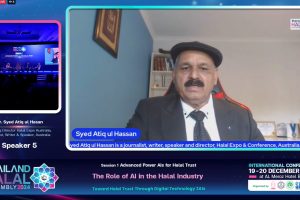By Muhammad Khurshid
Corruption in Pakistan is widespread and extends to every sector from the government to the judiciary, police, health services, and education. The problems are long-standing, and despite ongoing calls for reform, and many attempts to improve the situation, there is little evidence of progress.
In its latest report, Transparency International has said that corruption in Pakistan has increased. Pakistan has become the 140th country in corruption, that is, about one hundred and forty-nine countries have less corruption than Pakistan. According to the report, the score has come down from twenty-eight to twenty-seven, which is the worst in the last nine years. Transparency International said that while compiling the report, the former PML-N regime, the last few months of the PTI, and the PDM conclusions were drawn by taking the data of the current government.
Transparency International has recommended that Pakistan needs effective measures to get rid of corruption. Corruption in the dear country has spread from top to bottom, the influential classes are looting from the state resources to the common man, and the law enforcement agencies are working in the country, police, and FIA. There are about thirty-six institutions and agencies, including NAB, which is active in the fight against various crimes, but bribery is not decreasing, the series of commissions is not stopping, nor has the mess in official accounts been stopped. It is evident that the performance of so many law enforcement agencies and anti-corruption agencies is unsatisfactory that corruption is spreading. The irony is that earthquake victim or the people affected by the floods are not safe even with the assistance provided by the international community.
are looting from the state resources to the common man, and the law enforcement agencies are working in the country, police, and FIA. There are about thirty-six institutions and agencies, including NAB, which is active in the fight against various crimes, but bribery is not decreasing, the series of commissions is not stopping, nor has the mess in official accounts been stopped. It is evident that the performance of so many law enforcement agencies and anti-corruption agencies is unsatisfactory that corruption is spreading. The irony is that earthquake victim or the people affected by the floods are not safe even with the assistance provided by the international community.
The concept of social development in Pakistan has always been shown to be a rule or regulation. Whenever political parties have raised slogans or prepared manifestos for development, there is no mention of improving the morals of the society. The practical situation is also similar. That those people get prominent positions in the parties who throw wealth on the leader and his family with open hands. No party or the leadership itself asks such people where they get such wealth from. He tells the story of the treasures of the elders, one starts counting the accounts of business successes. However, these are the same businesses that are always shown to be sinking in the tax returns.
Unfortunately, the same classes guilty of fraud in the documents are the rulers of the country. If there are businesses running on the streets that are called illegal, it will mean that the police and the relevant regulatory bodies are complicit in these businesses. And after a few months, the stones recovered from under the tar become the cause of accidents, which means that the contractor, supervisory staff and elected representatives have paid the price for keeping their eyes closed. General Pervez Musharraf’s list of accusations presented in his first broadcast speech when he dismissed the government of Mian Nawaz Sharif had the infamous title at the top. The allegation of corruption was at the forefront, but the parties whose government continued to be dismissed would present it as a war between democracy and dictatorship.
The political parties think that the people do not consider corruption as a major problem of the country, but the slogan of accountability by Tehreek-e-Insaf was accepted. It is true that the biggest fear of the participating parties in the PDM alliance is accountability. Earlier, the ruling parties have been making cases against each other with the intention of political revenge, but this time there was a new kind of challenge in front of them, so the PDM alliance amended the NAB rules as soon as the Imran government ended. This amendment sent a very wrong message to society. The people involved in corruption began to understand that if they fear punishment from the courts, they can avoid punishment by changing the laws in their favour. Society falls into the well that its powerful people want to throw. In Pakistan, the anti-corruption and justice delivery system has died. It is a matter of concern for every Pakistani that the country is falling into the abyss of corruption, good governance, social justice, education and health facilities, economic freedom, self-reliant foreign relations, and national welfare are in disrepute. Behind Pakistan’s bad condition, instability, and economic crisis is the hostage system in the hands of bad headlines. Unless the shackles of corruption are weakened, Pakistan’s journey toward development will remain impossible.
[END]




